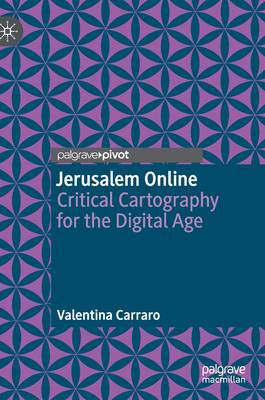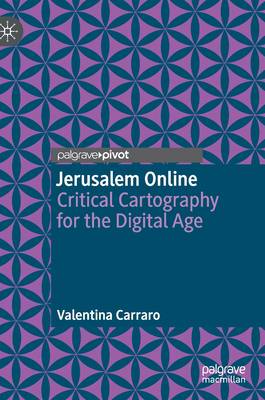
- Afhalen na 1 uur in een winkel met voorraad
- Gratis thuislevering in België vanaf € 30
- Ruim aanbod met 7 miljoen producten
- Afhalen na 1 uur in een winkel met voorraad
- Gratis thuislevering in België vanaf € 30
- Ruim aanbod met 7 miljoen producten
Zoeken
€ 76,95
+ 153 punten
Uitvoering
Omschrijving
The book addresses the rapid shifts which have taken place within cartography, and argues that no amount of technological sophistication will lead to neutral representations, and that as such critical cartography provides a solid foundation for questioning the power of maps. It considers the fragmentation, dynamism and opacity that characterise online maps, and argues for the need of new ways of thinking and researching maps. The book offers an approach grounded in 'ontological' social theory and feminist technoscience, and illustrates it through the analysis of three Jerusalem-related mapping controversies. Using online media, historical maps and ethnographic work, each case study explores a different map provider and a recent mapping development: Google Maps and the distributed authorship of web-maps; Waze and algorithmic navigation; OpenStreetMap and crowdsourcing. The book is a key read to faculty and advanced students in Urban Studies and Critical Cartography. It will particularly appeal to those working in the digital geographies
Specificaties
Betrokkenen
- Auteur(s):
- Uitgeverij:
Inhoud
- Aantal bladzijden:
- 130
- Taal:
- Engels
- Reeks:
Eigenschappen
- Productcode (EAN):
- 9789811633133
- Verschijningsdatum:
- 21/09/2021
- Uitvoering:
- Hardcover
- Formaat:
- Genaaid
- Afmetingen:
- 148 mm x 210 mm
- Gewicht:
- 326 g

Alleen bij Standaard Boekhandel
+ 153 punten op je klantenkaart van Standaard Boekhandel
Beoordelingen
We publiceren alleen reviews die voldoen aan de voorwaarden voor reviews. Bekijk onze voorwaarden voor reviews.











